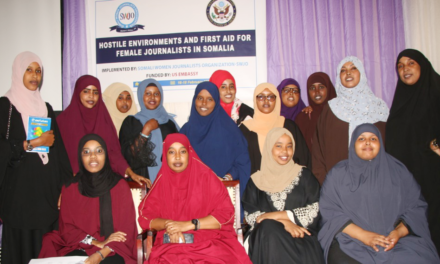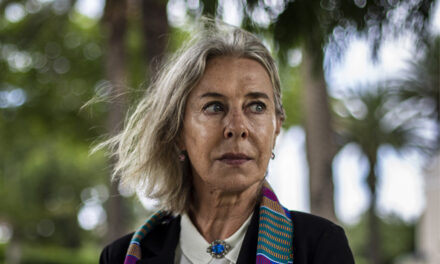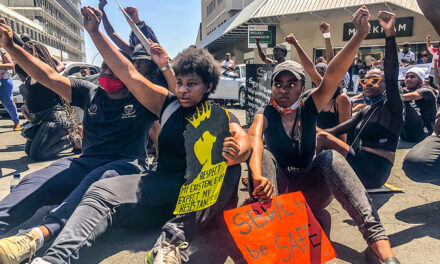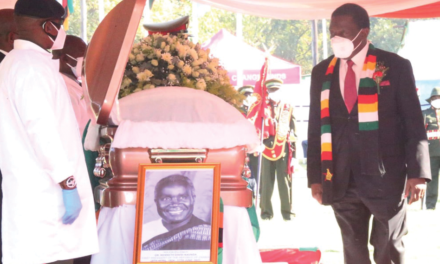
A winter of discontent or season of revolution?
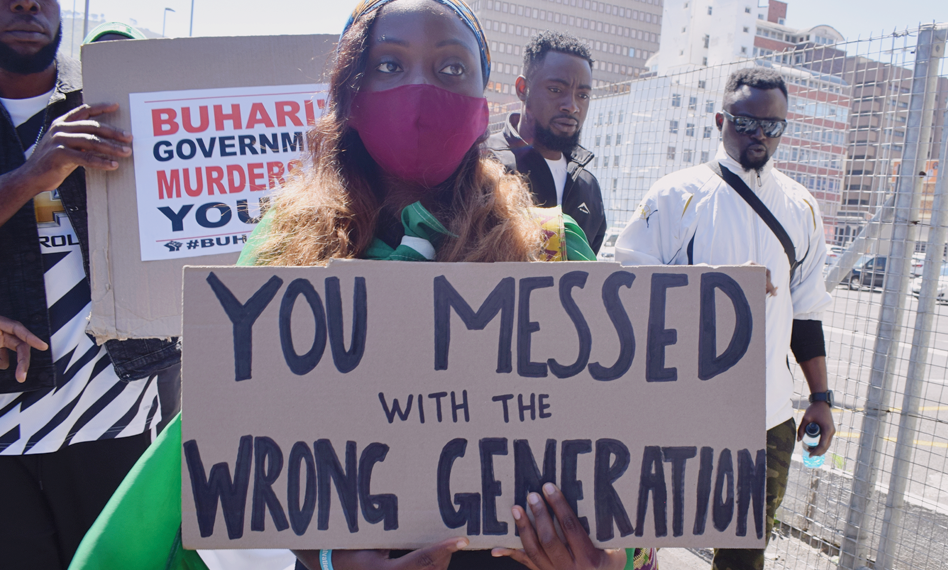
Brian Kagoro reflects on recent youth-led protests in Africa and the implications for the future
In the first two weeks of July 2021, protests triggered by the incarceration of former South African President Jacob Zuma rocked South Africa resulting in social, economic and political carnage.
These losses are difficult to comprehend without appreciating the racial, class and gender profile of South African society where 49 percent of the country is classified as chronically poor; 13 percent are transient poor; 14 percent are vulnerable; 20 percent are middle class and 4 percent constitute the elite. Poverty, unemployment and inequality shapes the attitude of the majority of South Africans to their State and indeed business sector.
A week earlier, sporadic month-long protests transformed into deadly uprisings in the usually quiet Kingdom of Eswatini and it’s believed that at least 40 people were reportedly killed by security forces. The protests in Eswatini had wide ranging demands, including democratization of the political system, unbanning of political parties, a shift from an absolute to constitutional monarchy and an end to all forms of State economic and political impunity.
The outrage by African youth against the establishment, state, civic, religious and market economy has global and regional antecedents and triggers which the Covid-19 pandemic and its various contexts have helped to dramatise.
Trend or Sign?
Globalisation has enabled imperialism, racialism, oppression, populism and militarisation to thrive in the context of non-inclusive growth, political and economic liberalisation. Since 2011, we have witnessed recurrent mass uprisings by African youth from North, East, West, Central and Southern Africa. Some analysts have hailed these as a “triumph of the oppressed and the exploited”, a modern proletarian social revolution of sorts.
Despite the euphoria that has attended these insurrections by African young people since 2010 (Maputo, September 2010 bread riots), there are no real examples where huge sacrifices have resulted in a complete overhaul of the economic or political systems in favour of African youth. If anything, the situation of young people has worsened in the last 11 years. Authoritarianism has also worsened in the intervening period.
However, there is a decisiveness and force which can no longer be concealed in the way young people globally are asserting their agency across the continent from #BlackLivesMatter, #RhodesMustFall, #ZimbabweanLivesMatter and #EndSARS among others. Emerging from the slums, villages, townships and suburbs of Africa, the spectre of youth-led revolutions now haunts the streets, parliaments and cabinet meetings across Africa. This phenomenon is reconfiguring African political thinking and only now are policymakers and development agencies beginning to grasp its significance.
But what most don’t seem to realise is that this Street Power – manifesting as Youth Power – is in essence a clash of paradigms of development. It is a confrontation between the masses of the African people and new versions of imperialism, neo-colonialism, exploitation and aggression in many parts of Africa.
In Africa, the so-called ‘Youth Question’ has become more or less a polite conversation about the trajectory of development and economic structural transformation in Africa. For almost two decades now since the advent of multipartyism conversations about economic alternatives, agrarian revolutions and radical redistribution have been taboo. Since the late 1980s, abnormal efforts have been put into whitewashing and obscuring the real issue in Africa.
What African youth are demanding is economic and political self-determination in the context of the right to development. As Maya Angelou once said: “There is nothing as tragic as a young cynic, because it means that the person has moved from “knowing nothing to believing nothing”. African youth believe that another Africa is not only possible, but it is imperative.
African youth are angry about the ‘system’, their governments, and for good reason.
Socio-economic and political stress and repression is the leading cause of death amongst African youth. African youth are traumatised and they continue to experience chronic stress, especially during this time of Covid-19 because of state repression, overall environmental
As a result of various factors, the majority of African youth are culturally disconnected from their families, communities, the economy and society at large due to exclusion. Sadly, young women in particular, suffer doubly as a result of regressive cultural practices, economic exclusion and rising sexual and gender-based violence in an increasingly militarised patriarchal society
As the youth suffer from the otherisation and discrimination in broader society based on race, ethnicity, gender and class, the impoverished youth also become easy prey to various elites and anti-State groups that seek to recruit them into violent extremism or political violence
Overall, poverty, inequality, exclusion and State repression and impunity fuel the rising tide of youth-led revolution in Africa.
The Explanations
On the face of it, the tumultuous state of Africa suggests amongst other things multiple failures, including leadership, electorialism, liberal idealism, governance, ethics and professionalism, institutions, service delivery, economic management, State, market and society, citizenship and followership to mention a few.
It requires a deeper look into the soul of the continent, its history, economic structure, governance systems, political culture and overall direction of travel suggests that the following is what is really going on. Let’s take a look at the real challenges that are there:
The system is broken, i.e. the economic development trajectory and logic as well as the political systems and institutions that support it. The masses of African people work and a few elites, who may not labour at all, will benefit from that work. Many generations of the poor will continue to be impoverished whilst the wealthy get wealthier and less accountable.
Our current economic development trajectory will not produce transformation for women, youth, peasants. The neoliberal pathway that we are following cannot resolve poverty, inequality and exclusion.
Our economic development trajectory will not and cannot produce liberty, freedom, self-determination and self-reliance. Neo-liberalism will not avail healthcare for all, education for all, skills development, value-adding and locally vibrant economies. Our system will not produce greater accountability and transparency from State elites.
This system will continue to feminize poverty and entrench racism, classism and the Deep State.
We face choiceless and contentless democracies where elections are mere rituals and lead to the betrayal of public trust in institutions and leadership or merely the recycling of the same gerontocracy.
The breakdown in social contracts has led to wide-spread anti-establishment sentiments amongst the youth transforming into radicalisation while political populism thrives.
With the systemic failure or the hijacking of institutions and constitutions, the Deep State becomes naked and unashamed.
With a hollowed-out State and soul-less civil society organisations both the State elite, the civil society elite, academic, military, bureaucratic and business elite become mere echoes of the empire.
There is global and local concentration of capital and power as well as the militarisation of both.
The COVID-19 pandemic era has highlighted the link between global economic policies, economic decision-making, science and technology and the control of intellectual property rights (IPRs).
We see how instruments, tools and means of domination are used. Transnational corporations and multinational corporations are producing goods and services. In turn local private sector and especially small, medium and micro enterprises (SMMEs) in agriculture, mining, telecommunications, transport, infrastructure, serve as mere sub-contractors, vendors or touts of the global monopolies and oligopolies
We now have solid evidence of the reach and extent of surveillance to entrench dominance as monopolies and oligopolies covertly and overtly influence political power, electoral outcomes and candidature. This leads to a degradation and commercialization of democracy. It further leads to a brazen mortgaging of the policy processes and outcomes.
The legitimacy of the State and leadership is impacted by clients, debtors or compradorised – effectively recolonised. There is the negotiated subordination where there are mutual interests between the local elites and international finance capital. We see leaders becoming vulnerable to social and political struggles and upheavals but mostly we see leaders becoming autocratic in order to defend economic interests and privilege
Conclusion
What does all this mean and what conclusions should we draw as we move into the future?
Youth are not homogenous. They are a heterogenous group that face the very same global, regional and national structural challenges. Structural crises cannot be transformed by efficient integration and representation in the status quo (the mess that we are in).
Transformation requires critical consciousness and a thorough knowledge of ourselves and the world around us. Only then can one develop specific strategies for dealing with each of the challenges we face as a collective. Notably, transformation of structural factors cannot come only from protest and entrepreneurship.
There is thorough work required to address the root and stem issues nationally, regionally and globally.
Finally, two ideas from Thomas Sankara and Frantz Fanon … ‘Transformation requires a certain degree of madness and for the current generation of youth to discover its mission in relative opacity, fulfill it or betray it. The time to blame the eldership (past generation) has long gone. African youth are trying to seize history and plan their future(s) through social struggle.
Hopefully through their actions at multiple levels they can begin to reverse the legacies of colonialism in social and economic policy and practice in Africa, including education, health, housing, infrastructure development, technology access, financial inclusion; research and development; to dismantle the global system dominated by oligopolies and monopolies or seek alternatives to it.
Alternatives
Domestic struggles against local or regional comrador classes is insufficient unless it includes the system of international institutions, donors that govern development agendas and control levers of power and favours or propagates interests of white supremacists or the West above the rest.
African youth are seeking to dismantle coloniality in local institutions, policies and practices in all social sectors and the economy: to go beyond the fixation with and sole focus on behavioural change amongst African elites to fighting for structural changes in the global, regional and national economies.
Across Africa, protesting youth are seeking to dismantle supremacism – white supremacy, genocidal tendencies, exploitation of labour, land-grabs and over-exploitation of natural resources; male supremacy/patriarchy, and human supremacy – that justifies the destruction of the planet and biodiversity to the detriment of future generations.





